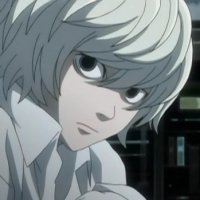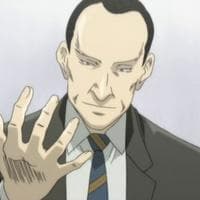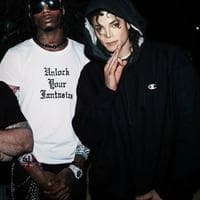Minami Natsume mbti kişilik türü
Kişilik
"Minami Natsume hangi kişilik türü? Minami Natsume, MBTI, 5w6 - sp/sx - 594 'de INTJ kişilik türüdür, RCOEI, RCOEI, büyük 5, IEI' dır."
I am an INTJ myself, and I also have an INFJ friend. We analyzed Minami together and came to the same conclusion: he aligns more closely with Te–Fi than Fe–Ti. Childhood: Minami’s obedience to his mother and his “polite, well-mannered” behavior in the entertainment industry look more like the result of Te—a strategic calculation—than anything else. As a powerless child unable to pursue what he truly loved, he adopted a façade that maximized survival efficiency while Fi’s need for authenticity was suppressed. His disgust toward the entertainment world stems from Fi’s desire for truth and autonomy being denied. By contrast, Fe-users subconsciously sense others’ expectations and adapt themselves to preserve harmony. Even if they dislike socializing, their mask is more about “fitting in.” Otherwise, they cannot be self-consistent. Deep down, they worry about being excluded, failing others’ expectations, or ruining the atmosphere (very clear in Sogo). Minami lacks this. He doesn’t truly care about the feelings of people he sees as indifferent. As an actor, he simply “performs” to conserve energy and hide his real self. When his mother told him, “If you don’t go to the set, you’ll trouble others,” what struck him was the trouble (Te), not the “others.”He appears compliant to others because doing so minimizes trouble for him. Deep down, he doesn't genuinely crave the so-called atmosphere of harmony. Relationship with Haruki: He treasures Haruki because Haruki understands him through music, fulfilling Fi’s longing for a few deep, genuine bonds. But even in this relationship, his framework is Te–Fi: personal values supported by external logic. When Haruki’s Fi-driven choices clashed with his Te–Fi system (Te: not cherishing life is irrational; sacrificing it for someone else is absurd. Fi: if you won’t accept my advice, does that mean I’m not important to you?), Minami’s expectations collapsed. The order, rationality, and future he envisioned were shattered. His reaction was Te–Fi: anger, a decisive judgment, and cutting the bond. This differs from how Fe-users respond. Minami’s famous “machine-gun rant,” blasting everyone he sees as fake—including even Nagi and Zero, whom Haruki values—shows tertiary Fi asserting itself in an extreme way, backed by Te’s destructive logic and colored by inferior Se’s violent imagery. Haruki once described Minami as wild and furious inside—very much how tertiary Fi can erupt. By contrast, INFJs’ tertiary Ti usually lends a calmer, more composed inner tone (again, compare Sogo: he can act violently, but his inner life is not truly “wild” or “passionate”; Minami’s inner life feels much closer to the ITJ pattern we see in Iori and Ten). How INFJs vs. INTJs end relationships? -INFJ (Ni–Ti loop): over-giving → feeling unappreciated → building resentment → emotional exhaustion → gradual withdrawal. -INTJ (Ni–Te–Fi): setting a standard → realizing the other fails or obstructs it → resentment builds → decisive judgment → actively cutting the person off. I think Minami left Haruki essentially because he felt, “Haruki doesn’t truly value me; I matter less to him than Zero or Nagi.” That’s twisted Fi. The surface justification, however, was Haruki’s “irrational choice” (Te). On Fi’s role: Many note Minami’s Fi and treat it as a 6th-slot “critical function.” Yes, he criticizes a lot with Fi. But if Minami were an INFJ, using shadow Fi should feel stressful, draining, full of inner conflict. Compare again with Sogo: as a classic INFJ, when pursuing his dream he constantly doubts himself—should he follow music, be an idol, write songs, what about his father, what about Tamaki? His process is conflicted and tortuous. Minami is different. For him, Fi—asserting and honoring his true self—is positive. Writing his own songs and playing piano brings him joy. He knew early what he loved and has consistently pursued it without inner doubt. He never fully abandoned acting but balanced both acting and composing. As he matured, he shed more and more of the unwanted expectations imposed on him. This is why I believe Minami is an INTJ. And I realize I’ve gone into great depth about Minami’s early development, leaving little room for discussing Zool, Nagi, Tsukumo, or even Trigger. If necessary, I’ll provide that analysis later.
Biyografi
Kişilik correlate

Yukito Orikasa “Yuki”

Riku Nanase

Sogo Osaka

Tenn Kujo

Haruka Isumi

Iori Izumi

Momose Sunohara “Momo”

Banri Ogami
















